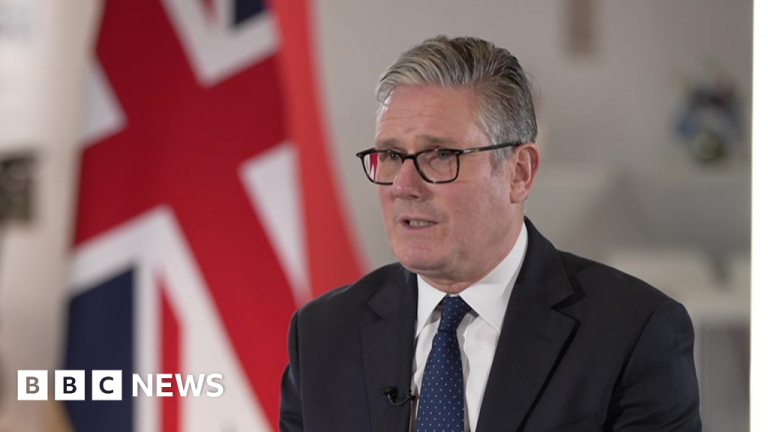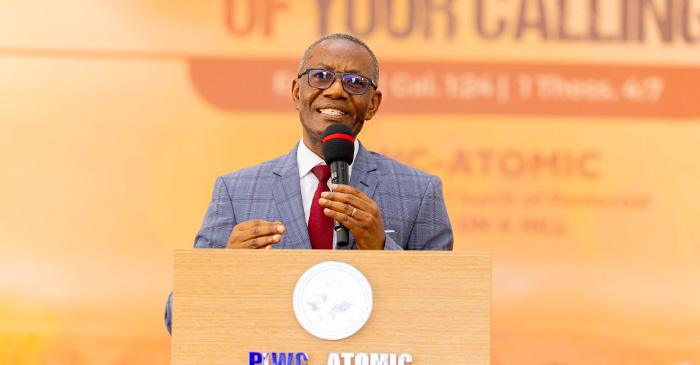
The latest United Nations (UN) projections suggest that the world’s population could grow to around 8.5 billion in 2030 and 9.7 billion in 2050, before reaching a peak of around 10.4 billion people during the 2080s.
The population is expected to remain at that level until 2100.
Slowest growth rate since 1950s
However, the annual World Population Prospect report, released on Monday to coincide with World Population Day, also notes that the global population is growing at its slowest rate since 1950, having fallen to less that one per cent in 2020.
Fertility, the report declares, has fallen markedly in recent decades for many countries: today, two-thirds of the global population lives in a country or area where lifetime fertility is below 2.1 births per woman, roughly the level required for zero growth in the long run, for a population with low mortality.
In 61 countries or areas, the population is expected to decrease by at least one per cent over the next three decades, as a result of sustained low levels of fertility and, in some cases, elevated rates of emigration.
The COVID-19 pandemic has had an effect on population change: global life expectancy at birth fell to 71 years in 2021 (down from 72.9 in 2019) and, in some countries, successive waves of the pandemic may have produced short-term reductions in numbers of pregnancies and births.
“Further actions by Governments aimed at reducing fertility would have little impact on the pace of population growth between now and mid-century, because of the youthful age structure of today’s global population,” said John Wilmoth, Director of the Population Division of the UN Department of Economic and Social Affairs (DESA).
“Nevertheless, the cumulative effect of lower fertility, if maintained over several decades, could be a more substantial deceleration of global population growth in the second half of the century”.
Growth concentrated in eight countries
More than half of the projected increase in the global population up to 2050 will be concentrated in eight countries: the Democratic Republic of the Congo, Egypt, Ethiopia, India, Nigeria, Pakistan, the Philippines and the United Republic of Tanzania.
Countries of sub-Saharan Africa are expected to contribute more than half of the increase anticipated through 2050.
Liu Zhenmin, UN Under-Secretary-General for Economic and Social Affairs, warned that rapid population growth makes eradicating poverty, combatting hunger and malnutrition, and increasing the coverage of health and education systems more difficult.
The ‘demographic dividend’
In most countries of sub-Saharan Africa, as well as in parts of Asia and Latin America and the Caribbean, recent reductions in fertility have led to a “demographic dividend”, with a rise in the share of the working age population (25 to 64 years), providing an opportunity for accelerated economic growth per capita.
The report argues that, to make the most of this opportunity, countries should invest in the further development of their human capital, by ensuring access to health care and quality education at all ages, and by promoting opportunities for productive employment and decent work.
Achieving the UN Sustainable Development Goals, especially those related to health, education and gender equality, will contribute to reducing fertility levels and slowing global population growth.
More older people, living longer
The world should expect to see far more grey hairs by 2050: by then, it is expected that the number of persons aged 65 years or over worldwide will be more than twice the number of children under the age of five, and about the same as the number under age 12.
Further reductions in mortality are projected to result in an average global longevity of around 77.2 years in 2050. Yet in 2021, life expectancy for the least developed countries lagged seven years behind the global average.
The report recommends that countries with ageing populations should take steps to adapt public programmes to the growing numbers of older persons, establishing universal health care and long-term care systems, and by improving the sustainability of social security and pension systems.
“This year’s World Population Day falls during a milestone year, when we anticipate the birth of the Earth’s eight billionth inhabitant”, said UN Secretary-General António Guterres, reacting to the report’s findings.
This is an occasion to celebrate our diversity, recognize our common humanity, and marvel at advancements in health that have extended lifespans and dramatically reduced maternal and child mortality rates,” he added. “At the same time, it is a reminder of our shared responsibility to care for our planet and a moment to reflect on where we still fall short of our commitments to one another”.
World Population Day
“Let us protect human rights and the ability of all individuals to make informed choices about whether and when to have children,” the UN chief said in his message marking World Population Day, coinciding with the report.
“We still live in a world of vast gender inequality – and we are witnessing renewed assaults on women’s rights, including on essential health services,” said the Secretary-General.
He called the day “an occasion to celebrate our diversity, recognize our common humanity, and marvel at advancements in health that have extended lifespans and dramatically reduced maternal and child mortality rates”.
At the same time, Mr. Guterres described it as a reminder of “our shared responsibility to care for our planet and a moment to reflect on where we still fall short of our commitments to one another”.
Amidst COVID-19, the climate crisis, wars and conflicts, humanitarian emergencies, hunger and poverty, he attested that “our world is in peril”.
“Complications related to pregnancy and childbirth are still the leading cause of death among girls aged 15 to 19”.
Mr. Guterres underscored that “eight billion people means eight billion opportunities to live dignified and fulfilled lives”.
He urged everyone to contribute to a common future with greater equality and solidarity for the planet and future generations.
Road to prosperity
World Population Day offers a moment to celebrate human progress, the World Population Fund (UNFPA) said in its message for the day.
Despite global challenges, UNFPA upheld that we live in a world in which “higher shares of people are educated and live healthier lives than at any previous point in history”.
“Societies that invest in their people, in their rights and choices, have proven time and again that this is the road to the prosperity and peace that everyone wants—and deserves”.
GraphicOnline














